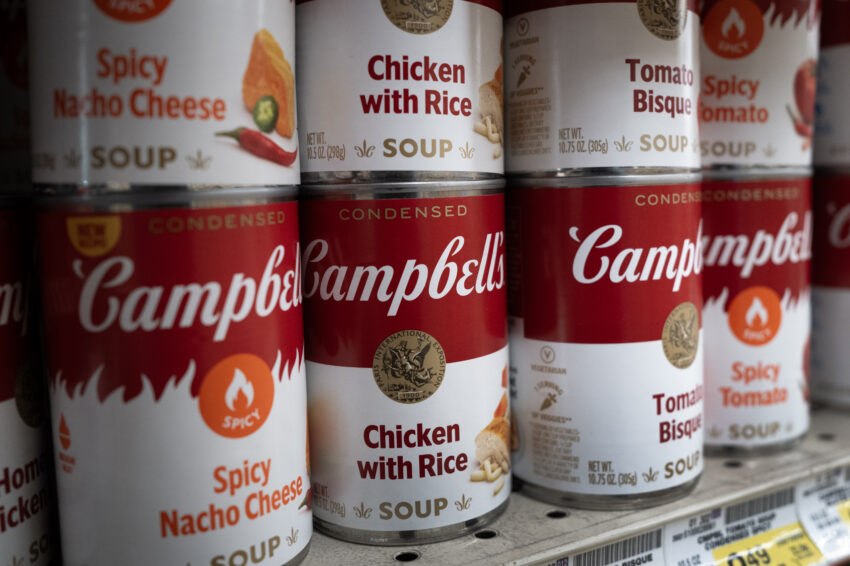
campbell s promises its soups are not Campbell’s has firmly stated that its soups do not contain 3D-printed chicken or any form of lab-grown or bioengineered meat, following the emergence of a controversial audio recording.
campbell s promises its soups are not
Background of the Controversy
The controversy began when a leaked audio recording allegedly featured Martin Bally, Campbell’s vice president of information technology, making remarks that suggested the company’s meat was derived from a 3D printer. The recording surfaced as part of a lawsuit filed by a former employee, raising serious questions about the integrity of Campbell’s product sourcing and manufacturing processes.
In the audio, Bally reportedly expressed disdain for the idea of consuming chicken that could be produced through advanced technologies, stating, “I don’t want to eat a fucking piece of chicken that came from a 3D printer, do you?” Such comments have sparked outrage among consumers and raised concerns about the company’s transparency regarding its ingredients.
Campbell’s Response
In response to the leaked audio, Campbell’s took to its official website to clarify its position. The company stated, “A recent video contained false comments about our ingredients. The comments heard on the recording about our food are not only inaccurate, they are absurd.” Campbell’s emphasized that it sources its chicken from “reputable” suppliers in the United States, all of which adhere to USDA standards.
This public statement was crucial for Campbell’s to mitigate potential damage to its brand reputation. The company’s insistence on using traditional chicken sourcing methods aims to reassure consumers that their products are made from high-quality, natural ingredients rather than experimental or synthetic alternatives.
The Implications of 3D-Printed Meat
The discussion surrounding 3D-printed meat is not merely a passing trend; it reflects broader conversations about the future of food production, sustainability, and consumer preferences. While Campbell’s has categorically denied using such technologies, the mere mention of 3D-printed chicken raises important questions about the food industry’s direction.
3D-printed meat, while still in its infancy, has been explored by various companies and research institutions as a potential solution to food scarcity and environmental concerns. The technology involves using bio-inks made from animal cells and plant materials to create meat products layer by layer. This method could theoretically reduce the carbon footprint associated with traditional meat production and offer a more sustainable alternative.
Current Developments in 3D-Printed Meat
In 2020, KFC announced a partnership with a Russian firm to develop lab-grown chicken nuggets using 3D printing technology. This initiative highlighted the growing interest in alternative protein sources and the potential for 3D printing to revolutionize the food industry. However, such advancements also come with ethical considerations and consumer skepticism.
Many consumers remain wary of lab-grown and bioengineered foods, often associating them with artificiality and health risks. The backlash against these technologies can be significant, as seen in Campbell’s case, where the mere suggestion of using 3D-printed chicken led to a public relations crisis.
The Legal Context
The audio recording that sparked the controversy is part of a lawsuit filed by a former employee, who claims to have recorded the conversation without Bally’s knowledge. This legal action raises questions about workplace ethics, employee rights, and the responsibilities of corporations to maintain a respectful and transparent environment.
While the lawsuit is ongoing, Campbell’s has placed Bally on administrative leave pending an investigation into the comments made in the recording. The company stated, “Keep in mind, the alleged comments heard on the audio were made by a person in IT, who has nothing to do with how we make our food.” This statement aims to distance the company’s operational practices from the remarks made by an individual in a non-relevant department.
Stakeholder Reactions
The fallout from the leaked audio has elicited a range of responses from stakeholders, including consumers, industry experts, and food safety advocates. Many consumers expressed their outrage on social media, demanding greater transparency from Campbell’s regarding its ingredient sourcing and production methods. The incident has prompted discussions about the importance of corporate accountability in the food industry.
Industry experts have weighed in on the implications of the controversy, noting that it highlights the challenges companies face in maintaining consumer trust. As food technologies evolve, companies must navigate the fine line between innovation and consumer acceptance. The backlash against 3D-printed meat serves as a reminder that transparency and communication are essential in building and maintaining brand loyalty.
Consumer Trust and Transparency
In an age where consumers are increasingly concerned about the origins of their food, transparency has become a critical factor in purchasing decisions. Companies like Campbell’s must prioritize clear communication about their sourcing practices and ingredient integrity to foster trust among consumers.
Research has shown that consumers are more likely to support brands that are open about their production processes. In contrast, any hint of deception or misinformation can lead to significant reputational damage. As such, Campbell’s response to the leaked audio is a crucial step in reaffirming its commitment to quality and transparency.
The Future of Food Production
The incident involving Campbell’s also raises broader questions about the future of food production. As technology continues to advance, the food industry will likely see more innovations, including lab-grown and 3D-printed products. Companies must be prepared to address consumer concerns and educate the public about the benefits and risks associated with these technologies.
Moreover, the food industry is under increasing pressure to adopt sustainable practices. As climate change and resource scarcity become more pressing issues, alternative protein sources, including 3D-printed meat, may become more mainstream. However, consumer acceptance will be key to the success of these innovations.
Conclusion
As Campbell’s navigates the fallout from the leaked audio recording, the company faces a critical juncture in its commitment to transparency and quality. The incident serves as a reminder of the importance of clear communication in building consumer trust, especially in an era where food production technologies are rapidly evolving.
While Campbell’s has categorically denied using 3D-printed chicken or any form of bioengineered meat, the controversy highlights the need for ongoing dialogue about the future of food. As consumers become more informed and concerned about their food choices, companies must adapt to meet these evolving expectations.
Ultimately, the Campbell’s incident underscores the delicate balance between innovation and consumer trust in the food industry. As the landscape continues to change, companies will need to prioritize transparency and accountability to maintain their reputations and foster lasting relationships with consumers.
Source: Original report
Was this helpful?
Last Modified: November 26, 2025 at 4:37 am
3 views















